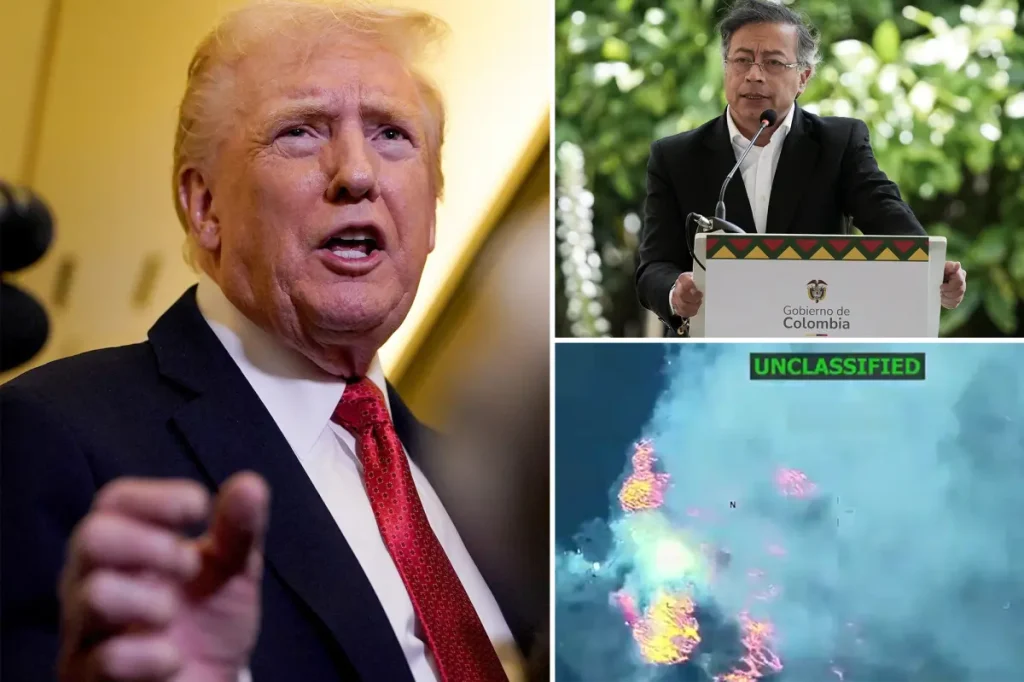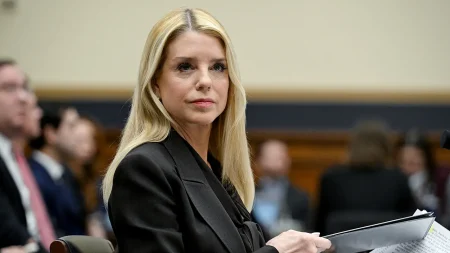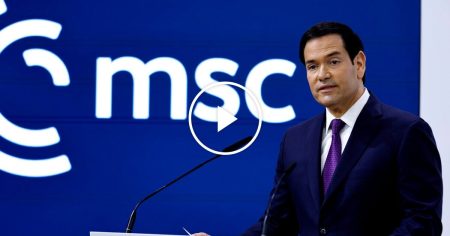Trump-Petro Dispute Escalates: A Growing Rift Between the U.S. and Colombia
Relations Deteriorate as Trump Threatens Tariffs and Aid Cuts
The diplomatic relationship between the United States and Colombia has reached a new low point, with President Donald Trump announcing punitive economic measures against one of America’s traditional allies in Latin America. On Sunday night, Trump declared he would raise tariffs on Colombian imports and halt all U.S. payments to the South American nation, significantly escalating a brewing dispute centered around maritime drug interdiction operations. The announcement came after Trump labeled Colombian President Gustavo Petro an “illegal drug leader” – a provocative characterization that prompted Colombia’s foreign ministry to issue a strong rebuke, calling the accusation an “extremely serious act” that undermines the dignity of Colombia’s democratically elected leader. This dramatic deterioration in relations highlights the fragile nature of U.S.-Colombia cooperation under the current administrations.
Military Operations in the Caribbean Spark International Controversy
At the heart of this diplomatic crisis lies a series of controversial U.S. military operations in Caribbean waters. Defense Secretary Pete Hegseth announced that U.S. forces had recently destroyed a vessel allegedly affiliated with Colombia’s leftist National Liberation Army rebel group, killing three people in the process. According to Hegseth, the vessel was involved in narcotics smuggling, though no specific evidence was provided to support this claim. President Petro quickly challenged this narrative, asserting that the boat belonged to a “humble family” rather than insurgents. This incident follows similar maritime strikes that have resulted in dozens of casualties, prompting outcry not only from Colombian officials but also from human rights activists and legal experts who question the legality and proportionality of these operations. The dispute highlights fundamental disagreements about sovereignty, military jurisdiction, and appropriate tactics in counter-narcotics efforts.
Trump’s Accusations and Colombia’s Response
The rhetorical clash between the two presidents has taken on an increasingly personal tone. Trump’s assertion that Colombia “doesn’t have a fight against drugs — they make drugs” represents one of the most direct accusations against a Colombian administration in recent memory. Speaking to reporters aboard Air Force One, Trump portrayed Colombia as complicit in the drug trade rather than as a partner in combating it. President Petro, who has positioned himself as a progressive leftist leader unlike his more conservative predecessors, responded with equal directness: “Mr. Trump, Colombia has never been rude to the United States… but you are rude and ignorant to Colombia. Since I am not a businessman, I am even less a drug trafficker. There is no greed in my heart.” This exchange reveals not just a policy disagreement but a fundamental clash of personalities and ideologies that complicates diplomatic resolution.
Economic Implications of Trump’s Threats
The economic ramifications of Trump’s threatened actions could be significant for Colombia, though the specifics remain unclear. Trump’s statement that he’s “stopping all payments to Colombia” lacks specificity, particularly since traditional aid channels have already been disrupted. Colombia was historically among the largest recipients of U.S. aid in the Western Hemisphere, primarily through USAID, which was suddenly curtailed earlier this year. Regarding tariffs, Colombia currently pays 10% on most exports to the United States – the baseline Trump has established for many trading partners – suggesting any increase would place additional pressure on the Colombian economy. The Colombian government has indicated it will seek international support in response to these threats, potentially drawing other nations into what has thus far been a bilateral dispute. These economic measures, if implemented, would mark a significant shift in U.S. policy toward a country long considered a key regional ally.
Broader Context of U.S.-Colombia Relations
This diplomatic crisis exists against a backdrop of changing U.S.-Colombia relations. In September, Trump designated Colombia among countries that had “failed demonstrably” in upholding counternarcotics agreements during the past year – a significant shift in official U.S. assessment of Colombia’s drug control efforts. Further complicating matters, the U.S. recently revoked President Petro’s visa after he joined a pro-Palestinian demonstration in New York and reportedly urged American soldiers to disobey Trump’s orders. These incidents suggest a broader ideological divide between Trump’s administration and Petro’s left-leaning government, which has taken positions on various international issues that diverge from U.S. preferences. Meanwhile, Colombia continues to struggle with its own persistent drug problems. Petro had pledged to transform coca-growing regions through social and military intervention, but these efforts have yielded limited success according to most observers.
Future Implications for Regional Stability and Counternarcotics Efforts
The deterioration in U.S.-Colombia relations raises significant questions about the future of regional stability and counternarcotics cooperation in the Western Hemisphere. For decades, Colombia has been considered one of America’s closest allies in Latin America, receiving billions in military and economic aid to combat drug trafficking and leftist insurgencies. This partnership, while not without tensions, has generally maintained bipartisan support in Washington. The current rift threatens to undermine this long-standing relationship at a time when drug trafficking organizations continue to adapt and evolve. If communication channels remain strained and punitive measures are implemented, there could be far-reaching consequences for intelligence sharing, joint operations, and coordinated policy approaches to transnational criminal organizations. Additionally, this public dispute might embolden drug trafficking networks by signaling disunity among the governments attempting to combat them. As both countries navigate this diplomatic crisis, finding a path back to constructive engagement will be crucial not only for bilateral relations but for addressing the complex challenges of drug trafficking that affect communities throughout the Americas.








